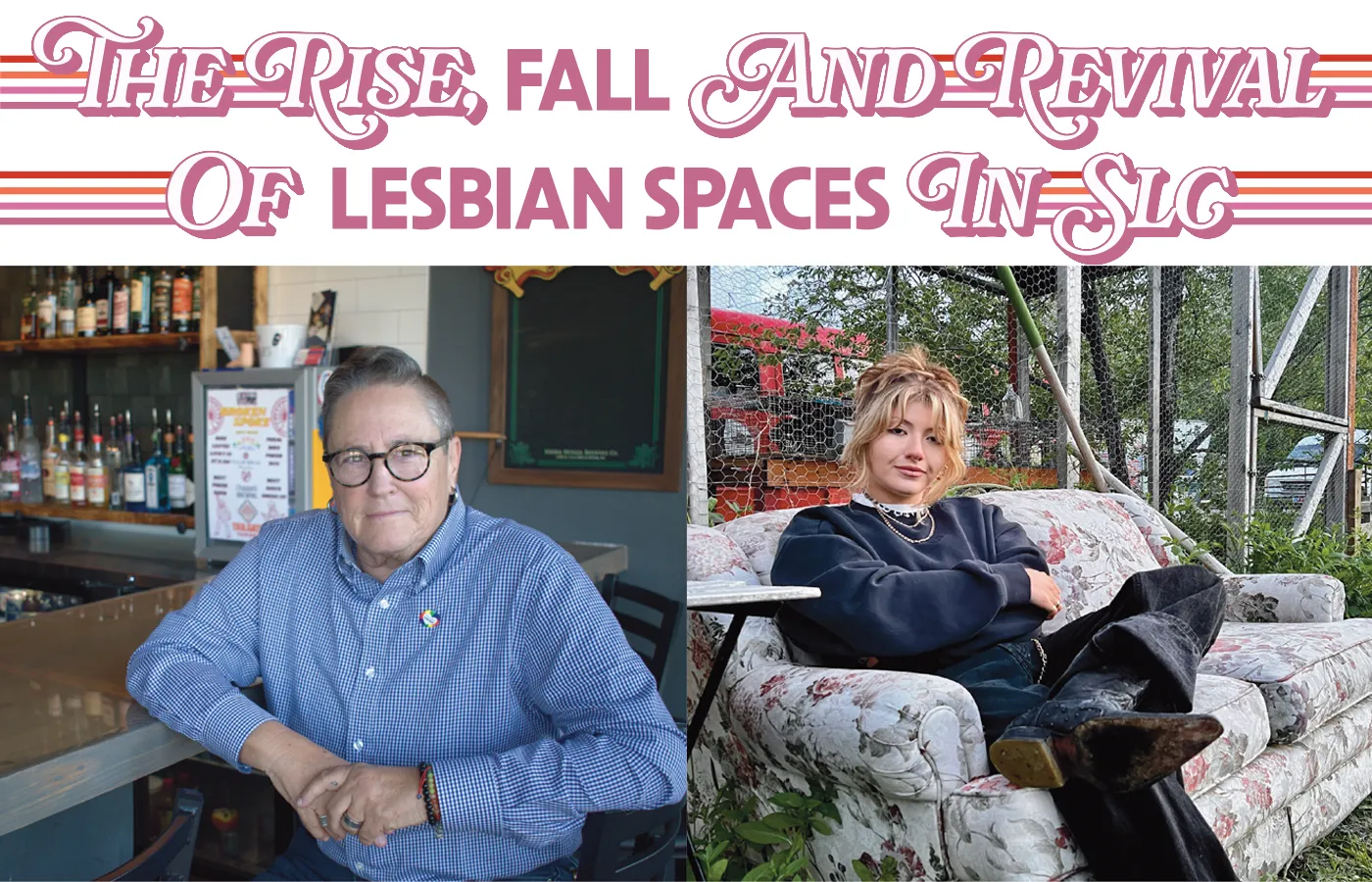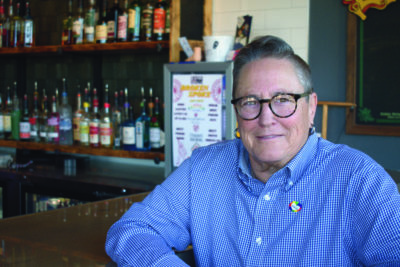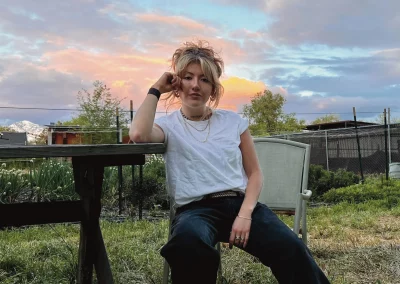
The Rise, Fall and Revival of Lesbian Spaces in SLC
Community
There are somewhere between 20 and 40 lesbian bars in the United States, compared to upwards of 800 gay bars. In Salt Lake City, and across the country, the number of explicitly lesbian spaces peaked in the 1980s and has since dwindled drastically.
“It’s really hard to get lesbians off their sofas,” jokes Babs De Lay (they/them), a local realtor and prominent activist in the SLC lesbian scene since the ‘70s. In reality, though, there has always been a demand for women-centered spaces within the queer community. Rising costs and gentrification, dating apps and online communities, prejudice against women-owned businesses—these factors all contribute to this decline.

“The very first [lesbian bar] that I went to was called Perky’s,” De Lay says. “My friend and I got up the courage to go. We were underage and we were scared to go in. And when we finally did, we walked up to the door and it was locked.” A sign informed them that the bar was permanently closed. They cite other SLC women’s bars that eventually shuttered over the years: Puss and Boots, Sisters, Mo Diggity’s, Paper Moon. “Women came from Wyoming, Idaho and Nevada on Saturday nights [at Puss and Boots]. There’d be easily 200 women in there having a great time,” De Lay says, until the owners started facing financial problems.
“Women came from Wyoming, Idaho and Nevada on Saturday nights [at Puss and Boots]. There’d be easily 200 women in there having a great time.”
De Lay was a board member for the first gay community center in Utah, a long-time volunteer for the Utah Aids Foundation and a producer of The Vagina Monologues at various local theaters for 20 years. They also met their wife, Bella De Lay, at a lesbian bar in Portland. Paxton Pub, where we sit together for this interview, has been open for two years and is the only SLC bar currently owned by a lesbian.
Today, however, lesbians are slowly reopening more physical spaces and reestablishing their own sense of community. “It’s just a stereotype that lesbians don’t really go out—that they just want to stay in with their cats,” says Miel Franco Pérez (they/them). Also known as VI:BRA, an “agender, a-genre” DJ, they are the founder and creative director of ¡DYKED!, a dance party and inclusive, affirming space for queer women and nonbinary individuals. Their first event was held last August at the Mobile Moon Co-op, a queer-led farming collective. The second, titled “Lovebound Gala,” took place on Valentine’s Day this year at Metro Music Hall.

Franco Pérez first found community with other lesbians online, discovering people like them on TikTok. “In 2020, when COVID came along, it was such a pivotal point for a lot of [queer people]. I came to the lesbian label, I came to the nonbinary label.” Now, they say, “we’re collectively starting to find all of these communities in person.” Franco Pérez had been involved in the SLC dance and electronic scene for years, but after experiencing assault within that community, they needed a place to dance and meet people that felt safe, reliable and relatable—somewhere that would welcome their newfound identities. “I could see that many others need that, too,” they say.
“I go dancing a lot, but this is the first time that I actually feel safe to dance, to move, to feel into my body.”
When ¡DYKED! was first announced as a femme-only event, “we got a lot of backlash from gay men” who felt excluded, Franco Pérez says. In an effort to center the lesbian experience, they only booked non-cis-male DJs and security personnel. The response from the lesbian community, though, has been immense; both events sold out immediately. “I go dancing a lot, but this is the first time that I actually feel safe to dance, to move, to feel into my body,” Franco Pérez says. Lesbian bars and events like ¡DYKED! matter because you don’t have to be in “fight or flight” mode. “You can actually connect with yourself and then connect with everyone around you.”
Read De Lay’s “Urban Living” column in Salt Lake City Weekly for more bits of local history as well as real estate news. Be the first to hear about the next ¡DYKED! event by following their Instagram @dykd.slc.
Read more LGBTQ+ features here:
Slaying Cancer and Serving Equity: Cancer’s A Drag
Throwin’ It Back into Aries Season with Gay Asstrology
Dykes on Bikes: Riding with Pride
